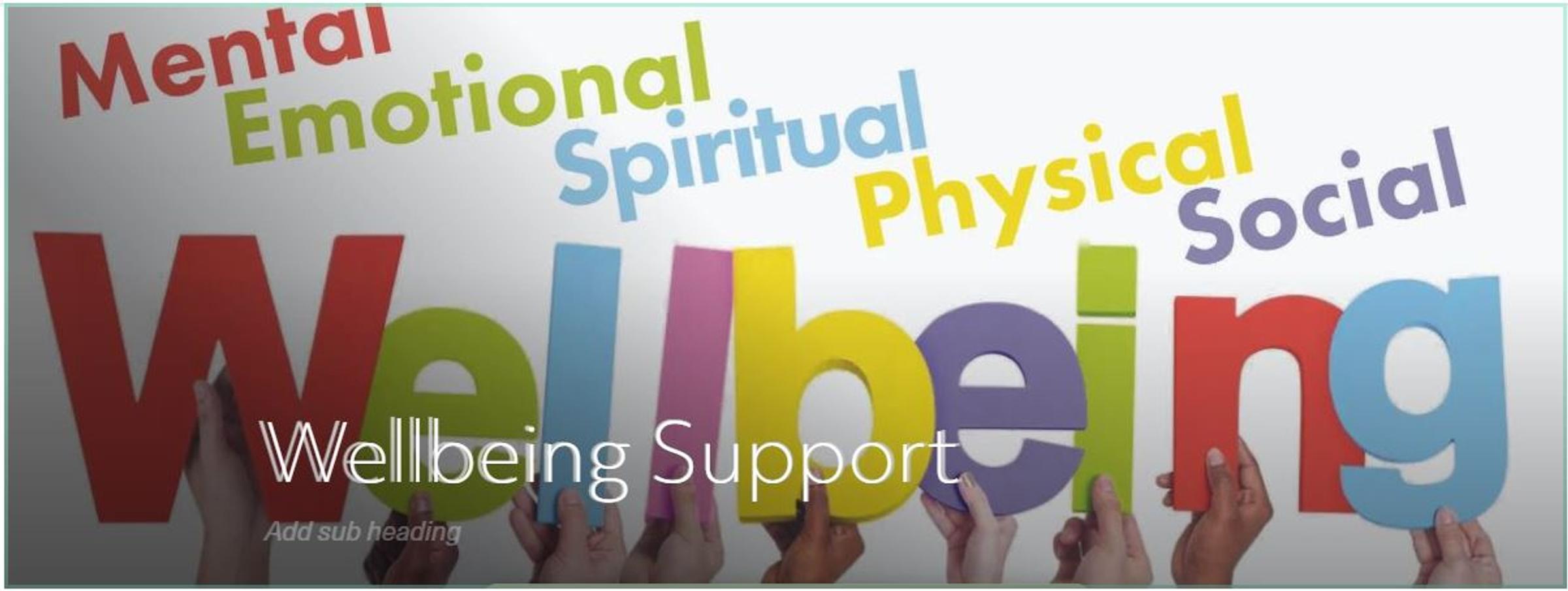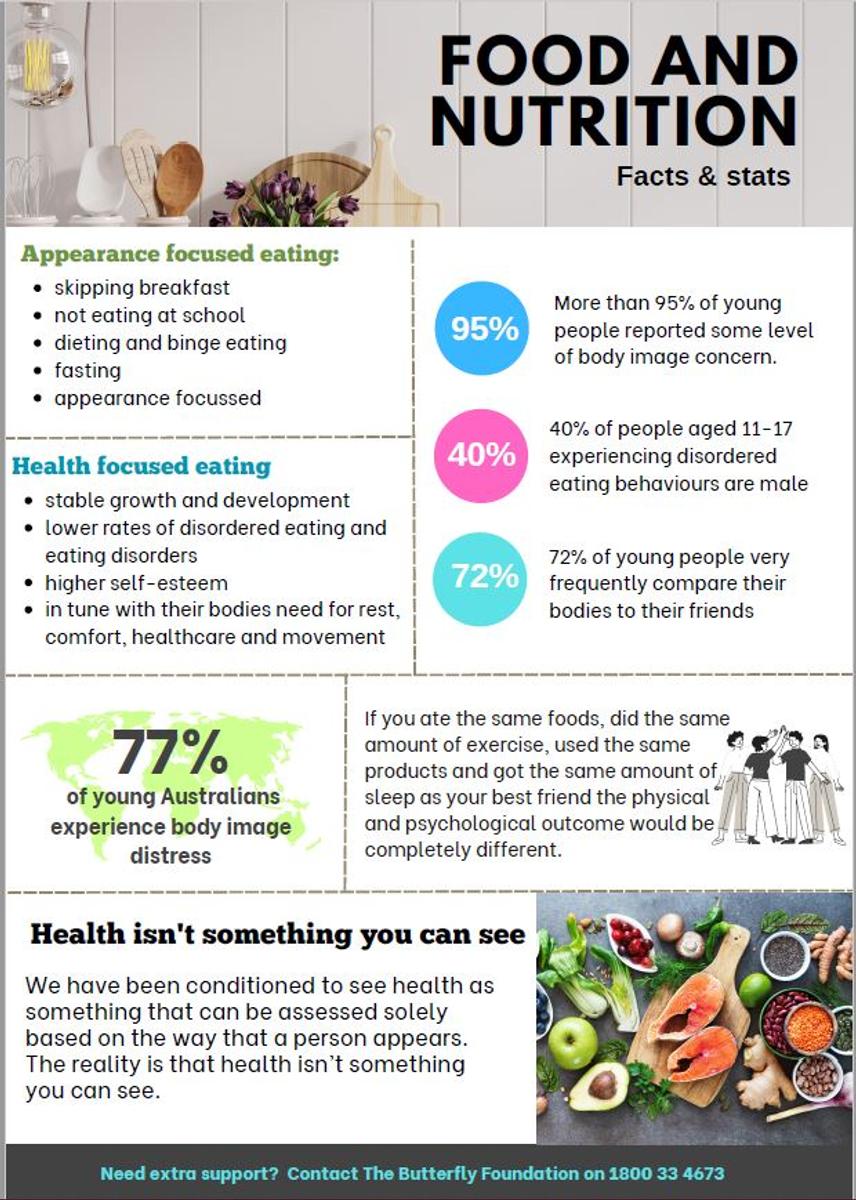Wellbeing

Food and Nutrition
Last week our counsellors attended a conference with 80 other high school counsellors and we learnt some really great things about nutrition from “this is your body” that we wanted to share with you all.
The conversation about food and nutrition is such an important one because 95% of young people reported some level of body image concern. And the statistics would be pretty similar for all ages, we live in a culture that is hyper focused on the “ideal” beauty standards, but the fact is there isn’t an ideal body shape or picture of beauty.
According to a study done by the butterfly foundation of nearly 3,000 young people surveyed,
- over half (57%) were dissatisfied with how their body looks.
- Nearly half (49%) said body dissatisfaction stopped them attending school.
- 78% of young people wished they were thinner or leaner survey results.
- Almost two thirds (62%) said social media made them feel dissatisfied with their body
- 72% of young people very frequently compare their bodies to their friends.
The issue with this comparison, whether it is with our peers or people we see on social media, it is an unrealistic comparison as there are so many factors the impact a person's weight and body shape including genetics and stages of development.
The reality is if you ate the same foods, did the same amount of exercise, used the same products and got the same amount of sleep as your best friend the physical and psychological outcome would be completely different.
And while it is so important to talk about food and nutrition, it's even more important to talk about in a healthy or joyful positive way that doesn't lead to a unhealthy or fractured relationship with food
A fractured relationship with food can look like:
- Associating guilt with what they ate
- Revolving their day around food
- Food choices connected to worth “i’m so bad/good because I ate…”
- Using food as a reward or punishment
- Counting calories or tracking macros
A joyful relationship can look like:
- No food labels (good, bad, treat)
- Focus on nourishing their bodies need or food
- Eating enough food
- Food isn't restricting their ability to enjoy food
- Ability to be flexible and spontaneous
Diet culture is still so prevalent in our culture today, even if the word diet isn't used.
Companies are no longer using the word “diet” instead be aware of phrases like
- Gut healing
-Cleanses
-Detox
- Fasting
- Counting macros
- Clean
- Unprocessed
- intermittent fasting
Let's work together to help each other have healthy relationships with food, and move away from a diet culture, in all forms and language.
If you are struggling with your relationship with food, or know someone who is and need some extra support, come chat to any of our wellbeing team at school. The butterfly foundation has trained counsellors to support those impacted by disordered eating and body image issues and offer free support via their online chat https://butterfly.org.au/ or by calling them on 1800 33 4673

